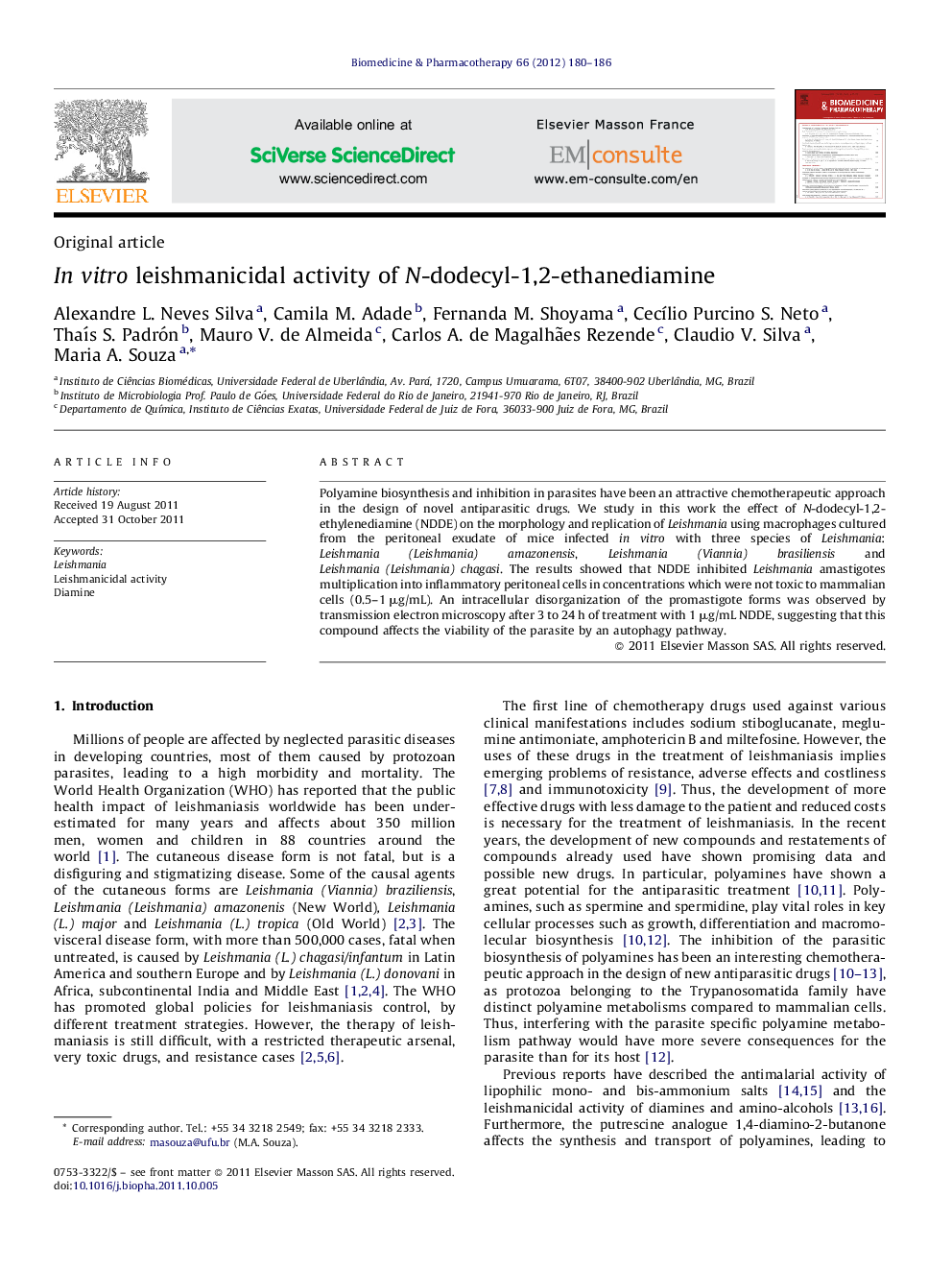| Article ID | Journal | Published Year | Pages | File Type |
|---|---|---|---|---|
| 2524346 | Biomedicine & Pharmacotherapy | 2012 | 7 Pages |
Polyamine biosynthesis and inhibition in parasites have been an attractive chemotherapeutic approach in the design of novel antiparasitic drugs. We study in this work the effect of N-dodecyl-1,2-ethylenediamine (NDDE) on the morphology and replication of Leishmania using macrophages cultured from the peritoneal exudate of mice infected in vitro with three species of Leishmania: Leishmania (Leishmania) amazonensis, Leishmania (Viannia) brasiliensis and Leishmania (Leishmania) chagasi. The results showed that NDDE inhibited Leishmania amastigotes multiplication into inflammatory peritoneal cells in concentrations which were not toxic to mammalian cells (0.5–1 μg/mL). An intracellular disorganization of the promastigote forms was observed by transmission electron microscopy after 3 to 24 h of treatment with 1 μg/mL NDDE, suggesting that this compound affects the viability of the parasite by an autophagy pathway.
